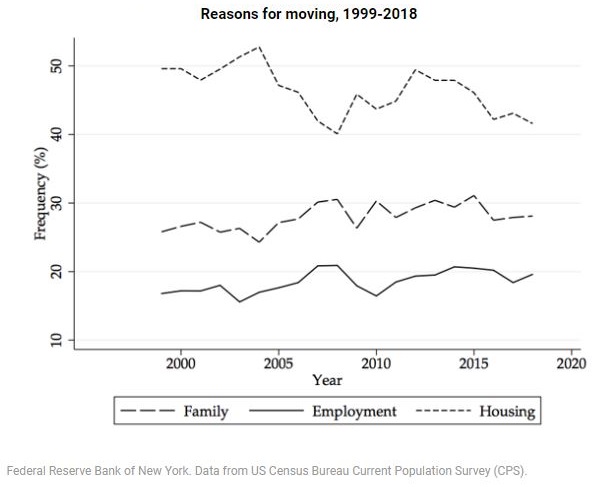Rethinking Conservatism – Part One
January 24, 2008
4:20 AM CDT
As the Republican primary season wears on, I find myself becoming increasingly introspective—and not just because of the sheer paucity of originality among the front-running Republican candidates (who are actually parodies of stereotypes, rather than actual candidates): Huckabee, the born-again Old South Democrat evangelist; McCain, the authoritarian war hero; Giuliani, the Big City über-lawyer, and Romney, the East Coast Establishment liberal Republican.
Fred Thompson and Duncan Hunter, the only real conservatives in the race, proved to be damp squib candidates; which leads me to ask: are we conservatives actually in the minority in this country? Are our views no longer even close to the mainstream in American political thought? Have we, as a society, drifted so far away from our founding principles and the Constitution, that we are doomed to end up as only a slightly-more conservative society than that of, say, the European Union?
If the above are true—and they may be—then we have an awful lot of work ahead of us, and an awfully-large number of people we need to educate in the values of conservatism, if we are ever to preserve the Republic in any semblance of the vision designed by the Founding Fathers.
(An aside: if you think the job is too much, or if you want to just throw up your hands and give up, uttering defeatist statements about “sheeple” as you do so, or if you start muttering about pressing “reset” buttons, then please stop reading at this point. I know your opinions and rationale, and I’m not interested in hearing them again. This is a working session.)
Most importantly, we conservatives need to reexamine the very essence of conservatism, see what works (and just as importantly, what doesn’t work), and start putting together a consistent vision for others to read, understand and support.
The most obvious way, one would think, is to revisit the principles of Barry Goldwater and Ronald Reagan. Or is it? Conservative columnist Mona Charen, in reviewing David Frum’s new book doesn’t think so:
When Ronald Reagan ran in 1980, the top marginal tax rate was 70 percent. Inflation was eroding the purchasing power of consumers. Overregulation strangled businesses. One out of every three households had been victimized by crime within the previous 12 months. The Soviet Union had added 12 new countries to the communist domain in the previous decade. American hostages in Tehran were paraded on international television. Welfare rolls were expanding.
Reagan’s reform package spoke to those issues. He favored tax cuts, deregulation, welfare reform, stricter law enforcement, tight money and a strong national defense.
I’m not so sure that Reagan’s reform package is that inappropriate today, but let that ride for a moment.
Inflation was painfully wrung from the economy in ‘82 and ‘83. The Soviet Union was brought low. Crime has dropped to levels not seen since the 1960s. Bipartisan efforts have reduced regulation. Welfare reform was finally accomplished in 1996.
But it wasn’t just the triumph of conservative solutions that left the Republican Party without a unifying theme; it was also the conduct of Republicans in power. Complacency, corruption and lack of imagination have combined to undermine the Republican brand.
Absolutely true. And yet, like so many diagnosticians, most of the “whip-smart” Frum’s prescriptions for conservatives to regain the high ground are dreadful:
A carbon tax. That’s right. To discourage the use of gas and oil and to fund more tax breaks for young families.
Let me spell this one out: no Republican has ever come to high office promising new taxes.
Cut the inheritance, corporate, capital gains and dividend taxes to zero to encourage wealth creation.
Much better. Not only would this allow Americans to keep more of the money they earn (and I don’t quite care whether it’s earned by actual work, or by investment; one creates the other), but this would dismantle the tax-collection apparatus which Government uses. I used to think that a flat 1% corporate tax would suffice, but I was wrong: 1% becomes 2% becomes, eventually 15%.
Modify an idea from Bill Clinton and permit “USA accounts” within Social Security that would permit even minimum wage workers to save a small fortune. Frum runs the numbers: “That should be our conservative and Republican promise to American workers: ‘Every American a millionaire by age sixty-seven!’“
I would rather privatize Social Security altogether, using Chile as an example, but I’m starting to think that it’s a no-go proposition. Putting a Trojan horse inside SocSec might be a better idea.
Reform the nation’s scandalous prisons. Conservatives put all those people behind bars to make the rest of us safe, Frum argues, but it is intolerable that there are 240,000 prison rapes yearly (compared with 90,000 rapes in the larger society).
Forget about this. I don’t care how awful prison is (although I agree that the situation is horrible), and I suspect that most conservatives don’t care about it, either. It’s a red-herring issue.
Revive conservation and create “green conservatism.”
Oy… and how do we do that? With green taxes and more regulations? That’s not very conservative.
Negotiate with Iran, sure, but resolve to deny nuclear weapons to them, whatever it takes.
Screw negotiation with any of these insane countries like Iran, Syria and North Korea. They are not the U.S.S.R., and treating them like they are simply gives them too much leeway to cause mischief. Warn them, then bomb them. End of story. We have bigger things to worry about.
Limit immigration to the skilled, and close our doors to radical Islamists, even if they have Ph.D.s.
I don’t have a problem with that. We didn’t allow avowed Communists to come into the country once (why bother, when we could create our own in Berkeley, Harvard, Austin and Stanford?), and we should do it again, with a different enemy.
All that is well and good, and we could debate them all ad infinitum/nauseam. I’d like to start from a few bedrock principles—principles of government, and of human nature (for government is after all just an extension of mankind’s baser instincts) which are immutable, and which we know have been proven true by history, time and time again, to the point where they are axiomatic. Then we can shape conservative principles around those axioms, avoiding wishful thinking no matter how tempting the proposition.
I also want to ignore the peripheral issues—the Republic is not going to fall because of lousy prison conditions or stem-cell research funding.
The axioms below are in no order of importance: all of them are important. Most critical, however, is this observation: the converse of every single one of these axioms forms one or another plank of a socialist party’s platform.
Axiom #1: All capital (i.e. money) belongs to the individuals who earn it, and not to the State.
—This seems to me so self-evident that I hardly know how to explain it. Suffice it to say that in countries where capital has been considered the property of the State, those countries have generally collapsed, and been saved only by other countries where capital is not the property of the State.
Axiom #2: If you remove the incentive to perform a specific task, then the task will not get done, or at best get done half-heartedly.
—So welfare/unemployment payments are inherently self-defeating, in that they remove the incentive for anyone to get a job. (Note: I am not talking about people who are genuinely needy, such as the crippled, retarded or insane. No decent human being can deny succor to people like that. But the definitions of “crippled, retarded or insane” need to be severely limited and carved in stone.)
—Included in this “welfare” clause is retirement. The problem with having the State provide retirement benefits is that people have not therefore involved themselves in providing for their own retirement, and here we are, with a system wherein income is soon not going to be sufficient to cover outlays.
Axiom #3: In the long run, government tends to become more tyrannical, while The People tend to get less so.
—Ignore for the moment the fact that, under our Constitution, The People are the government—because that’s not strictly true, in any event. We The People do not vote on regulation, only on legislation—and most tyranny comes not from legislation, but from the regulations which follow and underpin the laws. We have seen, time and time again, that over time, government becomes more oppressive, even our own. The Fourth Amendment becomes, eventually, ignored by government agents who seize assets and conduct searches and raids without a warrant or proper legal procedure.
—In the long run, The People will tend to correct egregious mistakes in our laws and society. (To think otherwise is too depressing to contemplate.)
Axiom #4: Government will always grow, and develop an insatiable appetite for revenue.
—Like most axioms, this needs little explanation, just a cursory study of history and/or economics. Here’s one:
Government spending as share of Gross Domestic Product:
1910: 8.2%
1997: 31.1%
And just so we know what that “GDP” really represents:
1910 GDP: $472.7 billion
1997 GDP: $8,703.5 billion. (+1,740%)
Government spending grew from $419.51 per person in 1910, to $9,927.74 per person in 1997. And that was before the Republican-led Congress of the early 2000s started their insane spending spree.
Axiom #5: An armed society is a polite society.
—By this, I don’t mean that people tip their hats or curtsey to each other in the streets. The true definition of a polite society is that with 80 million armed citizens in the country, government has to think twice before loading “undesirables” and “non-conformists” into cattle cars. The ability to defend one’s person against the aggressions of other individuals is a secondary (although worthwhile) benefit; and the ability to defend oneself and one’s family and community against baleful furriners a tertiary one. Any action by government, therefore, to curtail that citizen armament, should not only be viewed with suspicion and circumspection, but with massive resistance. (Remember, in order: soap box, letter box, ballot box and cartridge box.)
Axiom #6: America is not what’s wrong with the world.
—We may, and do, have our faults as a nation. But in general, what we do benefits everyone—whether it’s providing Marine choppers to rescue tsunami victims, or providing the economic engine for the entire world, or providing a blueprint for a free and prosperous society. Once again, this needs little proof other than a glance at the Press photos of the 2004 Asian tsunami aftermath, at the fact that the U.S.A. contributes nearly a quarter of the world’s GDP, and at the lines of people waiting for entry visas at our embassies and consulates abroad.
There are more, but those will do to start with. Note that I have not included anything to do with abortion, or education, or stem-cell research, or strip clubs, or homosexual activity. These are red herrings in the political process, and have nothing to do with government. Most importantly, none of them are allowed, or proscribed, in the Constitution.





